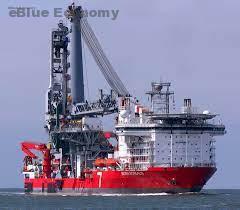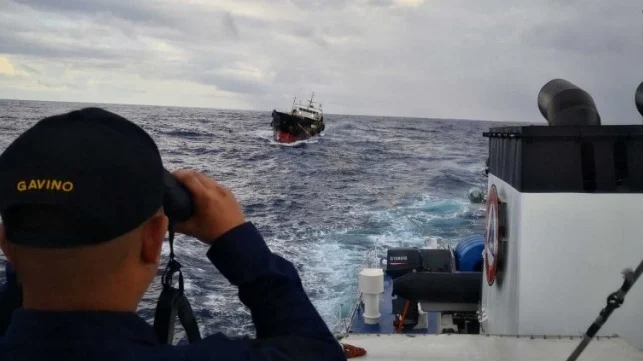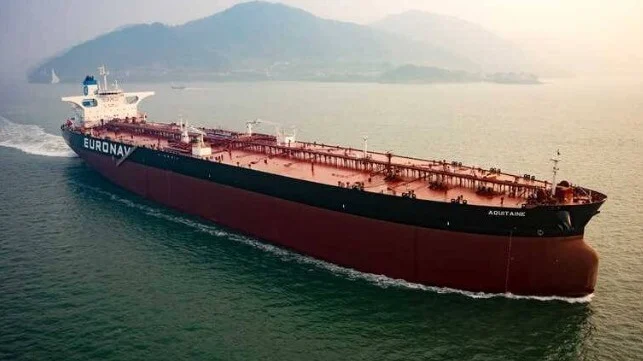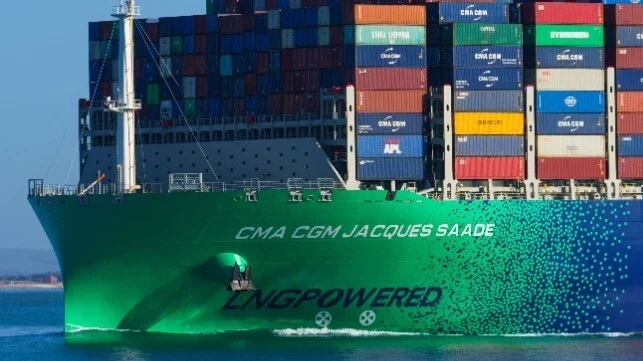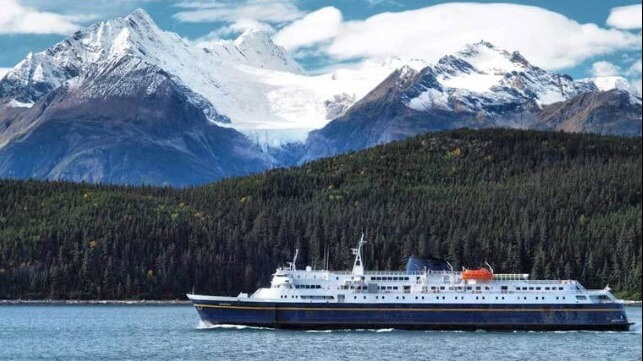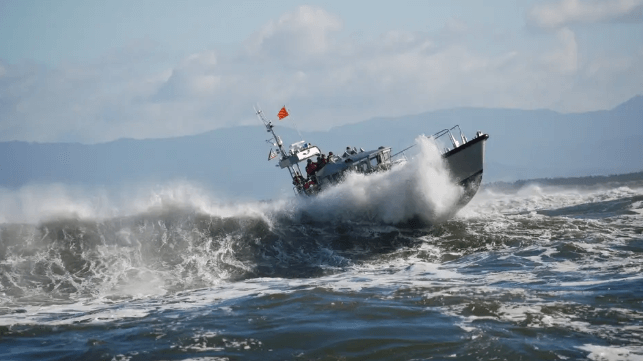The initial obligationof the ship owner under a time charter is the proper description of his vessel [3]. In this case, the description of the vessel is more detailed comparing with the voyage charter.
Another important obligation of the ship owner concerns the delivery of his vessel .The port or place of delivery can be more or less specified. Sometimes a certain port is mentioned and sometimes a certain area or range of ports are determined (e.g., “vessel to be delivered in the Mediterranean”). When only an area or a range is mentioned, it is usually the charterer who chooses the place of delivery. Delivery may not necessarily take place when the ship is inside the port or at berth. Sometimes, the charter party contains a clause of the following type: “vessel to be delivered on APS (arrival first pilot station) at x-port”. In such a case, the vessel may be delivered outside the port bounds.
Furthermore, the ship owner has to deliver the vessel to the charterer in a seaworthy condition. The ship also must conform to the requirements of the contract. For the charterer, it is important not only that the vessel is delivered in accordance with the agreement and in seaworthy condition, but also that she will be kept and maintained in the same good order and condition during the charter period.
If the ship owner does not keep the vessel in an efficient state, this entitles the charterer to sue him for damages, and not to repudiate the charter party.
Under a time charter party, the ship owner also undertakes that the ship must proceed at all the voyages with utmost dispatch. The ship owner bears the risk of delays unless covered by an exception clause.
Charterer’s Obligations in Time Charter
When the charterer is planning the last voyage, he must take into consideration that the vessel has to be redelivered in accordance with the agreement in the charter party.
Under a time charter, the charterer also has an obligation to trade the vessel only among safe ports and always within the agreed trading limits. The “safe port” concept is the same for any type of charter.
But if some unexpected and abnormal event thereafter suddenly occurs which creates conditions of unsafely (where conditions of safety previously existed) and as a result that the ship is delayed, damaged or destroyed, the charterer is not liable. Where the vessel has entered the port and new circumstances arise which render the port unsafe, the charterer is under no secondary obligation to nominate another port, if it is impossible for the vessel to avoid the danger by leaving the port .But if it is possible for her to avoid the danger by leaving the port, the charterer must order her to leave forthwith, whether or not she has completed loading/discharging and order her to go to another port.
The master is under the orders of the charterer as regards employment, agency or other arrangements .The risk of damage to the vessel caused by the employment orders (in contrast to the navigational orders) lies on the charterer.
That means the charterer has to indemnify the ship owner against all consequences or liabilities arising from the master signing bills of lading or otherwise complying with such orders. However, the ship owner, is entitled to compensation only if he can show that there was a causal connection between the loss and vessel’s compliance with the charterer’s instructions.
The charterer may instead of presenting the bills of lading to the master for signature by him on behalf of the ship owner, sign them by himself on the ship owner’s behalf. In either case, the signature binds the ship owner as principal to the contract contained in or evidenced by the bills of lading.
The charterer will be liable to indemnify the owner for any property damage or personal injury arising from loading or carriage of dangerous cargo. Furthermore, the charterer will be liable to indemnify the owner for any damage to the ship caused by the nature of the cargo itself, such as where cargoes carried on board are corrosive or explosive.
The payment of hire to the ship owner in advance or on the due date is considered an “absolute obligation” of the charterer.
Payment is required before performance and may be made on or before the date due. Where the due date falls on a Sunday or other non-banking day, then payment must be made not later than the immediately preceding banking day, otherwise the charterer will be in default.
Ship owner’s & Charterer’s Obligations in Bareboat Charter
the ship owner, sign them by himself on the ship owner’s behalf. In either case, the signature binds the ship owner as principal to the contract contained in or evidenced by the bills of lading.
The charterer will be liable to indemnify the owner for any property damage or personal injury arising from loading or carriage of dangerous cargo. Furthermore, the charterer will be liable to indemnify the owner for any damage to the ship caused by the nature of the cargo itself, such as where cargoes carried on board are corrosive or explosive.
The payment of hire to the ship owner in advance or on the due date is considered an “absolute obligation” of the charterer.
Payment is required before performance and may be made on or before the date due. Where the due date falls on a Sunday or other non-banking day, then payment must be made not later than the immediately preceding banking day, otherwise the charterer will be in default.
Ship owner’s & Charterer’s Obligations in Bareboat Charter
What is known as a bareboat charter is typically a more long term charter agreement where the owner of the ship delivers the commercial employment and operation of his vessel to a charterer, who will then operate the ship during the agreed period as if he owned it.
The charterer appoints the master (subject to the owner’s approval) and is responsible for all costs appertaining to the running of the vessel, while the owner is only responsible for asset (ship) depreciation and capital cost amortization (i.e., payment of capital and interest), and perhaps he may also bear the survey costs of the ship depending on the terms of the charter party.
The charterer is responsible for paying all operating expenses, voyage and cargo handling cost, whilst the ship owner undertakes only the capital cost.
Ship owner’s Obligations in Bareboat Charter
In a bareboat charter, the ship owner is only responsible for asset (ship) depreciation and capital cost amortization (i.e., payment of capital and interest), and perhaps he may also bear the survey costs of the ship depending on the terms of the charter party.
the ship delivers the commercial employment and operation of his vessel to a charterer, who will then operate the ship during the agreed period as if he owned it.
The charterer appoints the master (subject to the owner’s approval) and is responsible for all costs appertaining to the running of the vessel, while the owner is only responsible for asset (ship) depreciation and capital cost amortization (i.e., payment of capital and interest), and perhaps he may also bear the survey costs of the ship depending on the terms of the charter party.
The charterer is responsible for paying all operating expenses, voyage and cargo handling cost, whilst the ship owner undertakes only the capital cost.
Ship owner’s Obligations in Bareboat Charter
In a bareboat charter, the ship owner is only responsible for asset (ship) depreciation and capital cost amortization (i.e., payment of capital and interest), and perhaps he may also bear the survey costs of the ship depending on the terms of the charter party.
Charterer’s Obligations in Bareboat Charter
The charterer has the commercial and operational management of the vessel; he is responsible for the manning, maintenance, repair, insurance, navigation and employment of the vessel.
The remuneration payable by the charterer is called hire and is usually paid every 15 days, 30 days, or monthly. If the vessel is unable to trade for a period of time due to some fault of the owners, the charterer does not pay for such “off-hire” periods.
Under the bareboat charter, the charterer remains also responsible in whole or in part for arranging and paying for stevedoring and other loading and discharging operations. As a consequence, the charterer may be held liable for death or injury sustained by any person engaged in those operations, whether it is a stevedore or other port worker or a member of the ship’s crew. Charterers may also be liable for death or injury caused during loading, carriage and discharge of dangerous goods.
The charterer has the commercial and operational management of the vessel; he is responsible for the manning, maintenance, repair, insurance, navigation and employment of the vessel.
The remuneration payable by the charterer is called hire and is usually paid every 15 days, 30 days, or monthly. If the vessel is unable to trade for a period of time due to some fault of the owners, the charterer does not pay for such “off-hire” periods.
Under the bareboat charter, the charterer remains also responsible in whole or in part for arranging and paying for stevedoring and other loading and discharging operations. As a consequence, the charterer may be held liable for death or injury sustained by any person engaged in those operations, whether it is a stevedore or other port worker or a member of the ship’s crew. Charterers may also be liable for death or injury caused during loading, carriage and discharge of dangerous goods.
The most important area of risk is the liability for loss of or damage to cargo. The bareboat charterer is directly liable to the cargo owner, because he issues his own bills of lading and under the relevant law he is determined by the courts as the “carrier”.


